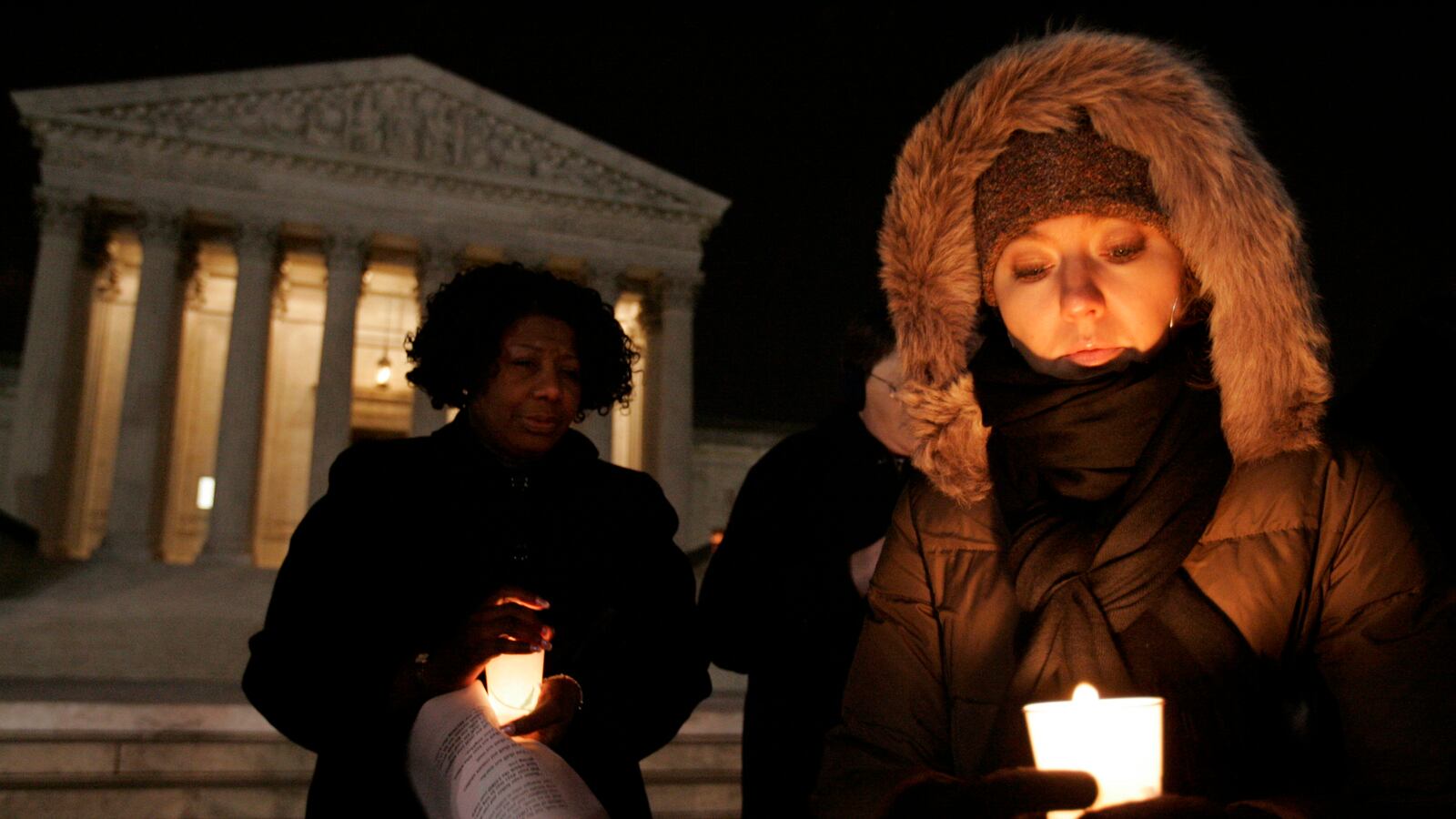For eight years beginning in 1999, the town of Greece, New York, began its legislative sessions with prayers given exclusively by Christian clergy. Many of the prayers referred to “Jesus,” the “Holy Ghost,” and other religious deities and symbols. The prayer giver often asked those in attendance to bow their heads and was frequently thanked for being the “chaplain of the month.” Among the many people present during these legislative sessions were residents who had to conduct official business with the town board as well as students fulfilling high school civics requirements by attending the sessions.

In 2008, two residents of Greece filed a lawsuit challenging the town’s practice of starting its sessions with Christian prayers, claiming that doing so was an unconstitutional “establishment” of religion violating the First Amendment. Subsequent to the filing of the lawsuit, several non-Christian prayer givers were allowed to begin the sessions, but after the record in the trial court was closed, the town went back to having exclusively Christian prayers.
Although Greece won in the trial court, a three-judge panel of the United States Court of Appeals ruled that the town’s practice of starting its sessions with predominantly Christian prayers violated the separation of church and state. In an opinion written by a conservative, Reagan-appointed judge, the appeals court ruled that a “reasonable observer” witnessing the prayers would conclude that the town officially aligned itself with Christianity during these official public sessions, something the Establishment Clause clearly prohibits.
It is no surprise that the Supreme Court decided to hear the case, which will be argued on November 6. Prayers at state and local legislative sessions all across the country have led to costly and expensive litigation, with judges in almost every region reaching different results depending on whether denominational or non-denominational prayers were being offered; whether members of one faith or members of diverse faiths were giving the prayers; and the political and religious values of the deciding judge.
The legal confusion—some would say chaos—among lower court judges on the validity of legislative prayers stems from the single Supreme Court case to look at the issue, Marsh v. Chambers , decided in 1983. In Marsh, the court upheld the use of a permanent legislative chaplain by the Nebraska legislature. The court offered no analysis, no test, and almost no reasoning. It simply observed that legislatures have used prayers to start their sessions since the nation’s founding and that therefore doing so must be constitutional, assuming the prayers are non-denominational.
The exclusively historical analysis the court employed in Marsh ignored the many historical practices with long pedigrees that the court has found to be unconstitutional in modern times. Among many examples are public school segregation, discrimination against women, and campaign finance laws such as the 1912 Montana law the court summarily overturned in 2012. Even the conservative Michael McConnell, director of the Stanford Constitutional Law Center and one of the country’s leading religion law scholars, criticized the court in Marsh by saying the analysis subverted “the principle of the rule of law. Unless we can articulate some principle that explains why legislative chaplains might not violate the establishment clause, and demonstrate that that principle continues to be applicable today, we cannot uphold a practice that so clearly violates fundamental principles we recognize under the clause.”
Most constitutional cases the Supreme Court decides to hear raise difficult interpretative questions that don’t yield easy answers. Greece v. Galloway, however, is not one of those cases. The inherent unfairness that results from overtly religious exercises at government hearings is easy to see. A Jewish man wearing a yarmulke trying to obtain a zoning variance immediately after being asked to bow his head and pray to Jesus may feel like an outsider to the process. On the other hand, many people believe it is important to dignify official government business with a prayer. The obvious answer is to have a moment of silence during which people can pray to whatever god they want to or not pray at all. There is no coercion or identification of the town, city, or state with a particular god, or indeed with any god.
That solution has worked well for public schools, and there is no good reason not to apply it to legislatures, courts, and executive sessions. Indeed, the town of Greece used moments of silence until it changed to Christian prayers in 1999. Using moments of silence takes the courts out of the troubling business of parsing the language of prayers to see if they are too religious or screening the prayer givers to determine whether there is enough diversity to satisfy what could only be amorphous and difficult to apply constitutional standards.
The only possible objection one could make to such a solution is that it deprives public officials of the opportunity to align the government with a specific religion or perhaps religion in general. But that is, of course, the point. Members of faiths other than the one being favored, or atheists, who don’t have any faith, shouldn’t have to face a religious exercise when they conduct government business. A moment of silence solemnizes the occasion and allows everyone the opportunity to reflect on whatever and whomever they wish without making non-adherents to the favored religion feel like, in Justice Sandra Day O’Connor’s famous words, “outsiders, not full members of the political community.”
Sometimes constitutional problems do have easy solutions. The court should prohibit official prayers at government ceremonies while encouraging moments of silent reflection, just as schools are doing all across our religiously diverse land.






